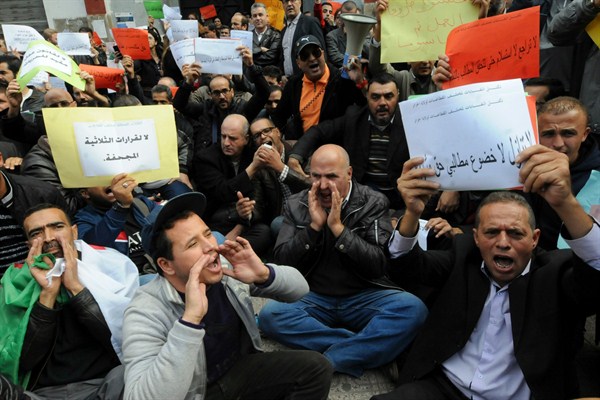Editor’s Note: This is the first article in an ongoing WPR series on social welfare policies in various countries around the world.
On June 1, state media in Algeria reported that President Abdelaziz Bouteflika had ordered a 2.5 percent increase in pensions for retirees, on top of an equivalent increase awarded in 2016. According to Reuters, there are 2.8 million retirees receiving pensions in Algeria, and the decision to increase their income comes as the oil-producing country struggles to adapt to reduced oil prices and considers reforms to its broader social welfare system. In an email interview, Azzedine Layachi, a professor of government and politics at St. John’s University, explains the origins of Algeria’s social welfare programs and describes how the country is reacting to current stresses.
WPR: What are the origins of Algeria’s current system of social benefits, including pensions and subsidies for goods like food and medicine, and how has the system evolved over time?

